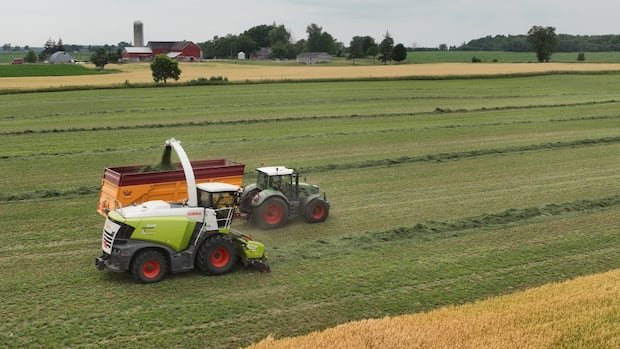A manufacturer specializing in combines for farmers in Western Canada has decided to shift production of some heavy machinery from the United States to Germany due to uncertainty surrounding tariffs. CLAAS, known for its North American machinery production in Nebraska, will now assemble its LEXION 8000 Series machines in Germany for the 2026 model year to maintain competitive prices amid current trade frameworks.
The move aims to navigate tariff challenges, specifically U.S. customs duties, and cater to their primary market in North America, including farmers in Alberta, Saskatchewan, Manitoba, and parts of Eastern Canada. Despite this decision, there will be no layoffs at the Nebraska plant, which will focus on serving the U.S. market.
Experts suggest that this strategic shift is not solely a response to existing trade dynamics but also anticipates potential complications during the renegotiation of the Canada-U.S.-Mexico Agreement (CUSMA). With uncertainty looming over tariff exemptions under CUSMA, businesses like CLAAS are proactively adjusting their operations to mitigate future risks.
Having a free trade agreement with Germany through the EU provides stability for companies like CLAAS. This move is seen as a proactive step by the company, with economists predicting similar adjustments from other multinational firms to preempt potential tariffs in the future.
Large investments in manufacturing facilities necessitate long-term planning, emphasizing the importance of stable trade environments for multinational corporations. This certainty allows businesses to forecast their operations and investments for the foreseeable future.
For farmers, investing in a combine represents a significant cost, with prices exceeding $1 million for a new machine. The decision by CLAAS to relocate production is seen as a smart business move that could translate to cost savings for farmers in Western Canada.
While transporting machinery across borders may seem simpler, the bottom line for businesses often dictates their decisions. Opting for overseas production over transborder shipments can be more cost-effective, especially in the face of heavy tariffs.

